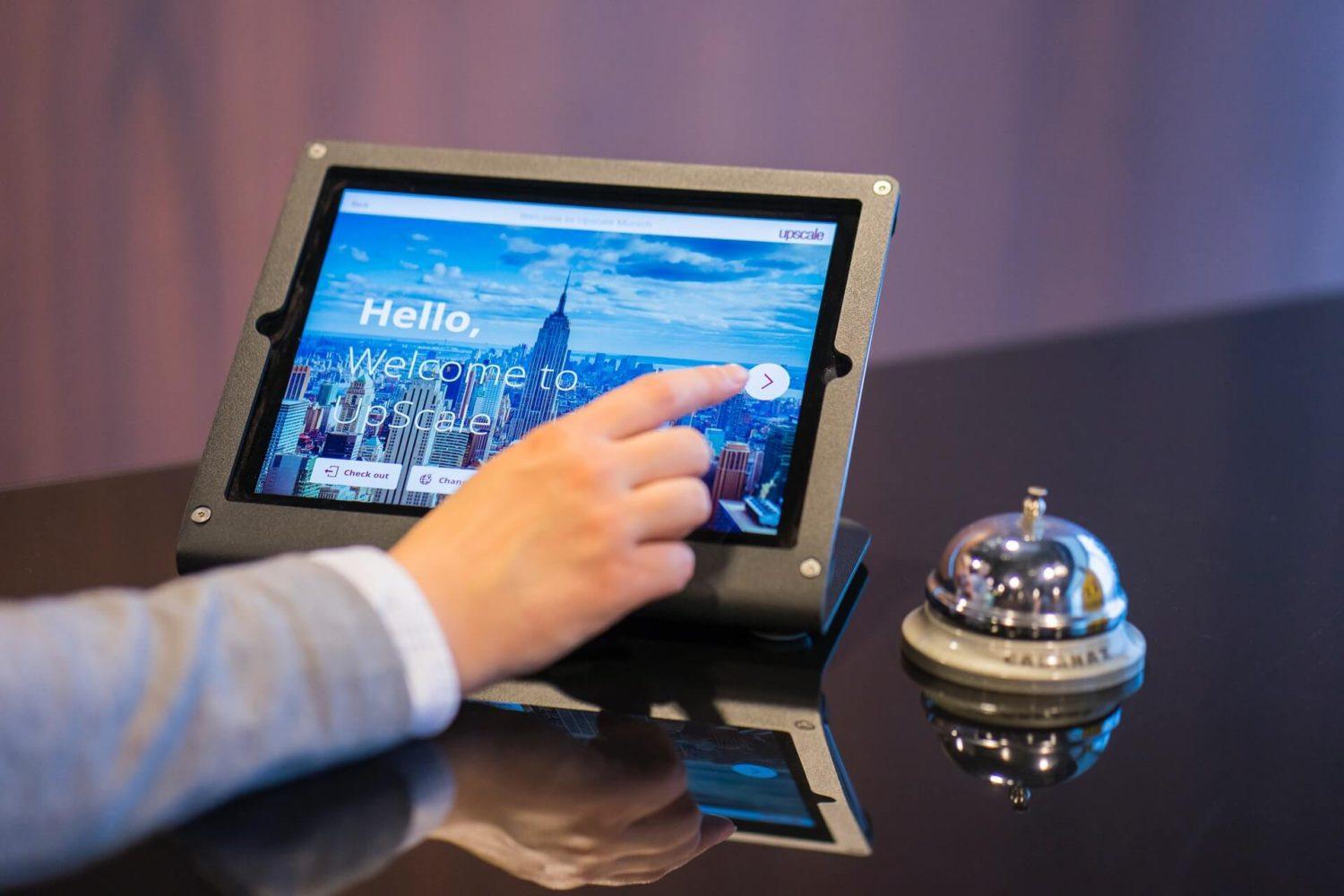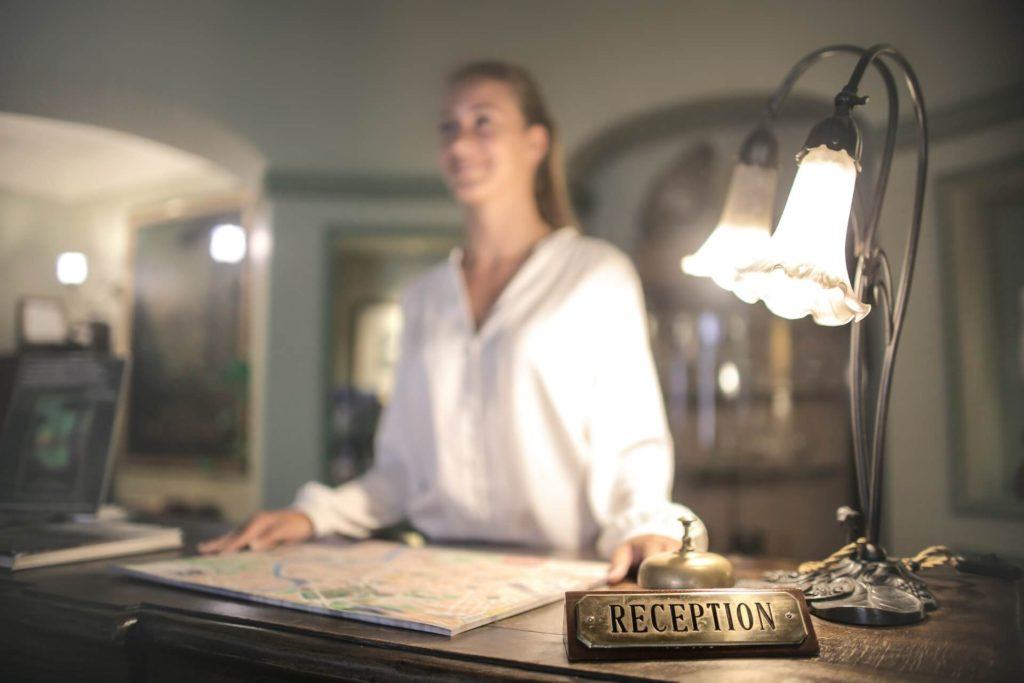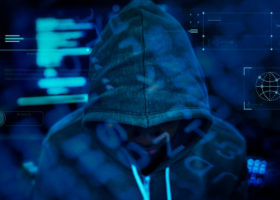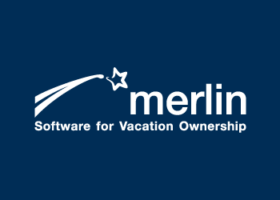
Hospitality technology for a post Covid-19 world
With plans to open the hospitality sector in the coming months, health, hygiene and safety have become guests’ top priority. Resorts need to provide owners and guests with the confidence they can return and enjoy their vacations safely.
Now is the time to “re-imagine the entire guest-staff relationship to minimize the need for human touch” and allow resorts to run on lower staff counts says Alexander Shashou, co-found and president, Alice.
It’s safe to say that guests will expect to see some big changes the next time they check in anywhere. For some time to come, vacations in any type of accommodation will be stripped-down with less communal access, fewer personalized interactions and suspended or pared back services. Even sharing an elevator could be limited!
The good news is that hospitality technology is available to help with this new post Covid-19 reality. The objective of much of the technology is to reduce human touchpoints and declutter resorts while still providing a great customer experience.
Here, we take a look at what hospitality technology is available for resorts so they can reassure guests they are taking all necessary measures to look after them.
What hospitality technology is available?
One of the simplest ways to reduce human interaction is remote check-in/check-out. There are a number of third-party solutions which can integrate with your PMS. Alternatively, the Merlin Guest Check In/Out App will enable guests to check in remotely through their mobile device and allow resorts to predict and manage staffing needs, save costs and reduce queues at the front desk.
The technology can alert staff when guests arrive limiting the amount of time they need to spend in public spaces. And, they offer seamless self-checkout with the option of providing additional services such as arranging transportation. All without any face-to-face contact that might concern your guest.
More resorts are now offering guests keyless unit access via their smartphone app with near-field communication (NFC) technology. Not only does this reduce the possibility of cross-contamination, it has environmental and cost benefits too. It reduces the use of plastic key cards and the need to visit reception when the card is demagnetized.
Guest engagement apps like Criton and WeBee enable resorts to reduce touchpoints and ensure guest safety is paramount. The apps contain information about the property, units and on-site facilities as well as links for direct bookings, contact and Wi-Fi information, social media links, offers, menus, local recommendations and more. All of which can be easily updated as and when the situation changes.
If you don’t think your owners and guests are open to downloading apps on their smartphones, Crave Interactive offers frictionless access to digital guest services on their own devices, without the need to download a mobile app.
Virtual concierge services through devices such as Alexa for Hospitality, Volara and Easy Voice integrate with your existing services. Guests can simply ask the device for advice on local restaurants, ordering towels and even checking out without the need for personal interaction. They also reduce operating costs by 32 per cent according to Easy Voice.
A simpler solution is the use of chatbots which allow you to interact with an AI via a chat interface. Chatbots are able to understand simple questions and provide answers almost instantaneously, taking the burden away from customer service staff and improving the experience for customers.
For example, helping guests to schedule room cleaning, asking for late check out at the time of leaving, or a fruit basket before arrival. Again, with minimal human contact.
Even simple text messaging and electronic signature capture can reduce or eliminate physical contact and interaction.

A cloud-based PMS with a built-in housekeeping and maintenance modules, like Merlin Software, lets housekeeping and maintenance teams conduct day-to-day operations entirely from mobile devices. This setup allows for remote communication between housekeeping staff and coordinators in support of continued social distancing practices. A mobile housekeeping portal also allows real-time information on guestrooms, room status, and outstanding tasks to be accessed and updated at the click of a button.
If you offer services that are only available to your owners, members or guests, recognition technology could be for you. Some hotels are already using face scanners to verify the identity of guests at check in, allow them access to the dining room for breakfast or access the leisure facilities.
The pandemic has also sounded the death-knell for the in-unit landline telephone system (if you still have one). But hospitality technology created by Intelity and BluIP allow users to place external, guest-to-guest, and guest-to-staff calls through in-room tablets. Not only can resorts replace outdated landline phones, which can harbour viruses and require regular cleansing, it declutters apartments, minimizes system maintenance, and reduces costs.
We’ve all heard about artificial intelligence (AI) but how can this help post Covid-19? AI is really just taking the mass of data that you collect about your guests and making it useful. This helps now because you can predict a guest’s preference based on their historical activities. And have services available for them without the need for additional human interaction.
For example, a guest uses a digital key to access the gym every afternoon and then stops by the café for a healthy smoothie. AI could push a message to their phone via the hotel app asking if they’d like to order the smoothie so that it’s ready when their workout is over. The smoothie can be waiting for them, without having any interaction with staff at all.
Housekeeping services are not exempt from advances in hospitality technology. Some hotels are now sewing microchips into the corners of sheets, towels, quilts and other linens. The tiny chip is water-resistant and can withstand high temperatures.
More importantly, it acts like an ID card for linen. With a QR code printed on each piece, guests can discover the washing history of each piece. It will tell them how many times it has been used, the temperature it was disinfected and when it was last washed.
On-site technology such as server-based resort management systems have also had their day. With cloud-based software that can be accessed remotely, resorts can minimize their on-premise staff footprint by allowing back-office teams—such as reservations, accounting, sales, and revenue management—to work and be productive from home.
Updates are also handled remotely, so no need for outside teams to enter the resort unnecessarily.
Some industry specialists are also suggesting that robots will begin to play an important role in hospitality. Perhaps the most famous example of this is the Hilton robot concierge ‘Connie’. This amazing robot uses speech recognition and AI to respond to queries from customers and intelligently learn from interactions.
At the Westin Buffalo, a Relay robot provides automated services to guests from bringing cocktails to their rooms to delivering extra towels, a complimentary toothbrush or toothpaste.
You might be chuckling now but watch this space.
No one knows exactly what the road to recovery will look like, but resorts are going to great lengths to reassure guests – and hospitality technology can help. How quickly that confidence returns remains to be seen. Resort managers need to prepare for multiple scenarios and have a plan for how they are going to adjust.
But one thing of which we can be certain – traditional hospitality has changed forever and being seen to care for the welfare of your owners and guests is essential for ongoing success. Advances in technology for resorts and hotels now makes this easier.
If you’d like to find out more about how Merlin Software can support you during this time with our cloud-based software and webapps, then email Mark Thomas now or request an online demo.
Images courtesy of ProxyClick on Pexels and Unsplash.



